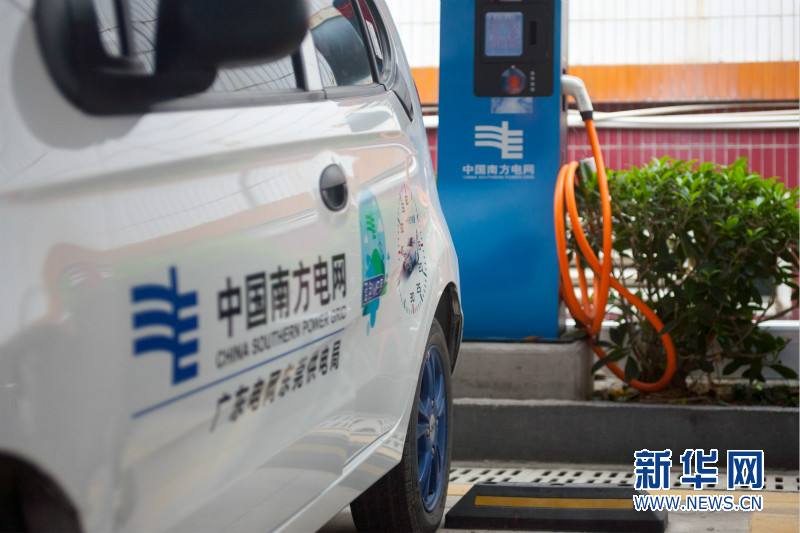


China’s new energy vehicle (NEV) industry concluded 2018 with outstanding results. Production and sales of China's NEVs increased to 1.05 and 1.03 million units respectively between January and November 2018, compared with less than 800,000 in the same time period of 2017.
How could China deliver such a remarkable achievement, especially when its economy suffered a periodic downturn last year?
A joint announcement was released by the country’s four ministries in February 2018, lowering financial subsidies for NEVs by over 30 percent. Subsidies are expected to be cut further in 2019, and may even be canceled altogether.
Despite these shrinking subsidies, the production and sales of NEVs still maintained rapid growth this year. Experts explained that supporting policies, such as easier license application, exemption from traffic restrictions, and parking charge discounts have helped to stimulate industry growth.
Additionally, a new dual-administration policy dealing with the management of average fuel consumption and new energy vehicles was brought in on April 1, 2018, aiming to promote new energy cars and provide additional compliance flexibility to the existing fuel consumption regulation.
If enterprises fail to meet the new policy standards, they will not be qualified to produce products with high fuel consumption, and could be fined.
Before these measures were taken, less than half of China’s 124 enterprises producing or importing passenger vehicles were involved in NEV production. The dual-administration successfully drove up the market share of NEVs.
China also continued to open up further in the automotive production sector, including NEV production. In 2018, the country removed foreign investment restrictions in China's auto industry, scrapping caps on foreign shares for new energy vehicle producers.
According to He Xiaopeng, Chairman of Chinese electric car start-up Xpeng Motors, China’s decision to remove the foreign equity limit for automakers was a critical juncture, after which the country’s auto industry would grow stronger. It requested domestic enterprises to invest more and accelerate innovation, which would, in turn, benefit consumers, He added.
 Fire brigade in Shanghai holds group wedding
Fire brigade in Shanghai holds group wedding Tourists enjoy ice sculptures in Datan Town, north China
Tourists enjoy ice sculptures in Datan Town, north China Sunset scenery of Dayan Pagoda in Xi'an
Sunset scenery of Dayan Pagoda in Xi'an Tourists have fun at scenic spot in Nanlong Town, NW China
Tourists have fun at scenic spot in Nanlong Town, NW China Harbin attracts tourists by making best use of ice in winter
Harbin attracts tourists by making best use of ice in winter In pics: FIS Alpine Ski Women's World Cup Slalom
In pics: FIS Alpine Ski Women's World Cup Slalom Black-necked cranes rest at reservoir in Lhunzhub County, Lhasa
Black-necked cranes rest at reservoir in Lhunzhub County, Lhasa China's FAST telescope will be available to foreign scientists in April
China's FAST telescope will be available to foreign scientists in April "She power" plays indispensable role in poverty alleviation
"She power" plays indispensable role in poverty alleviation Top 10 world news events of People's Daily in 2020
Top 10 world news events of People's Daily in 2020 Top 10 China news events of People's Daily in 2020
Top 10 China news events of People's Daily in 2020 Top 10 media buzzwords of 2020
Top 10 media buzzwords of 2020 Year-ender:10 major tourism stories of 2020
Year-ender:10 major tourism stories of 2020 No interference in Venezuelan issues
No interference in Venezuelan issues
 Biz prepares for trade spat
Biz prepares for trade spat
 Broadcasting Continent
Broadcasting Continent Australia wins Chinese CEOs as US loses
Australia wins Chinese CEOs as US loses